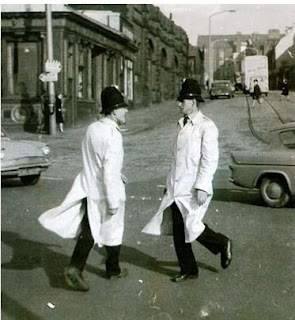A few days ago, we were drinking tea at the Runcible Spoon in Newent—a less attractive venue than a pea green boat but nice enough. It was there I added one more thing to my bucket list: ‘strong, sweet tea.’
It’s a British film cliché peculiar to Blitz movies, emergencies at sea, natural disasters, death, fire and shock. Strong sweet tea. Lazarus wouldn’t have died in the first place had he not refused strong sweet tea.
And I had never had it. Add it to my bucket list, I thought, and I might not even need a bucket list.
I’d been given weak sweet tea as a very young child, but early on had noticed my dad drank his without sugar, and I followed suit and have done ever since.
Over very strong unsweetened tea, I shared this new idea with my wife. The sooner the better, we agreed. But not now. This was exceptional tea. Very hot— (our tea pot never retains heat. Memo to self. Investigate)—strong and full bodied. No, definitely not now; sugar would ruin what we had. But this was clearly the tea to buy for the experiment.
I asked the nice lady running the Runcible Spoon, and she offered me a sleek colourful packet. The price made me wince but there was no going back; a treat for the weekend and with it a chance to recklessly add four teaspoons of sugar.
I shall report the results.
Behind the Runcible Spoon is an interesting arcade housing, amongst other things, a ‘Museum of Board Games.’ A small window display gripped me. Not on the scale of Egyptian tomb paintings or the frescos of Knossos, perhaps, but still weirdly evocative.
Update. Maybe I needed to be in severe shock. A strong, sweet tea is not very nice. Lazarus might have chosen the better option.























